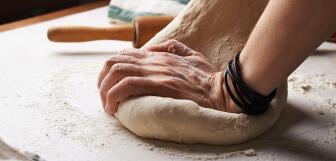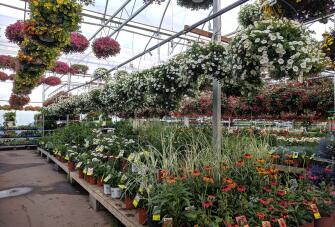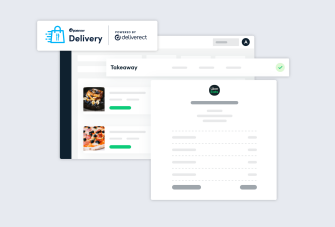Bakery Equipment Cost Guide: How Much Does it Cost?
So, are you thinking of opening a bakery business or expanding your existing bakery? Well, figuring out the cost of bakery equipment is no piece of cake! As it can be anywhere between £3,000 - £20,000 [1]. But don't go whipping out the credit card for the latest and greatest gear just yet - we’re here to help you.
In this blog post, we will be highlighting how the quality of bakery equipment affects your baked goods' quality, consistency, and efficiency. Plus, we’ll also delve into the different roles played by various kitchen utensils such as ovens, mixers, dough dividers, and bread slicers, which will all contribute to your bakery success. The icing on the cake? We'll also give you ideas on cost-saving tips for purchasing your bakery equipment! So, stick with us to find out more about:
-
Factors that affect the cost of bakery equipment
-
Cost breakdown of bakery equipment
-
Cost saving tips for purchasing bakery equipment
-
Final recommendations
Please note: any costs mentioned in this article should be viewed as estimates, and will vary according to the equipment type and where it is sourced.
Why good quality equipment matters
It’s a no brainer. Choosing the right cost-effective equipment is crucial for the success of any small bakery, as it can directly impact the quality of your baked goods.
Poor-quality equipment can lead to inconsistent results and frequent breakdowns, resulting in wasted ingredients and lost revenue. On the other hand, investing in high-quality equipment can lead to increased productivity, better quality baked goods, and ultimately, increased profitability. It can also be more cost-effective overall, despite the slightly higher initial price, given that many higher quality machines are energy efficient too.
Additionally, the right bakery equipment can help bakers keep up with demand. You will be able to provide consistent products to your customers, which is essential for building a loyal customer base in the highly competitive baking industry. Plus, good equipment means you can experiment with new products too.
Therefore, understanding these bakery startup costs within your business plan and how to manage them effectively is a must to grow a successful bakery.
So, let's crack on breaking down the different factors when it comes to baking equipment.
Factors that affect the cost of bakery equipment
Several factors can affect the cost of your baking equipment. Let's begin by analyzing the most important factors that you should consider when buying equipment for your bakery, before we move onto the range of bakery equipment you should look to purchase. popular step by step, so you get an idea of the potential initial costs related to your bakery's equipment.
Quality of the equipment
Listen up, folks! It's true what they say - you get what you pay for. Investing in high quality equipment may burn a hole in your startup costs, but it'll pay dividends in the long haul. Your customers will be licking their plates clean when they're served baked goods made with top-notch gear.
And don't forget about brand reputation.! The big dogs in the equipment game may charge a bit extra, but they're established for a reason - quality and reliability. So, sometimes it's worth shelling out the extra dough to ensure your kitchen is equipped with only the best. Your taste buds (and wallet) will thank you later.!
Size and capacity of the equipment
When it comes to equipment size and capacity, bigger ain't always better ...for your wallet. The more capacity and power you need, the more materials are required to make it, and that means a heftier price tag. Plus, installation and setup may cost extra for larger equipment.
In addition - you’ve really got to think about the space you’ve got to work with at your bakery. Get that tape measure out and work out exactly how much room you’ve got. You need ample space to work around your equipment (especially if you intend to have more than one employee), and if you’re having customer seating in your bakery, that’s even less room to use. Be reasonable with your expectations and find ways to maximize space - it may mean selecting a slightly smaller mixer for now.
No matter how grand your bakery dreams may be, finding the perfect fit is key to keeping those buns in the oven and customers happy. But don't just dive in and buy the biggest and baddest. You gotta find the sweet spot between size, capacity, and cost to keep things running smoothly. Take a minute to crunch the numbers and find the right match for your bakery team.
Technology and features
This innovative factor can also add to the cost, with more advanced and sophisticated equipment costing more than basic models.
The kitchen display system (KDS) is an excellent example of innovative bakery equipment with integrated technology that can improve speed and productivity. A KDS is like having a personal digital assistant that shows you the orders in real-time, helping you juggle your tasks with ease. Sure, this innovation comes at a cost, but it's worth it in the long run as it can save you time and prevent mistakes. Plus, who doesn't love a little bit of tech-savvy sophistication in their kitchen?
Therefore, while technology and advanced features can add to the cost of bakery equipment, they can also provide significant benefits, making them a worthwhile investment for any bakery looking to remain ahead of the game in today's market.
New vs. used equipment
Using new or second-hand equipment can significantly impact the cost of bakery equipment.
New equipment tends to be more pricey due to its quality, performance, and reliability. However, it also comes with the latest technology, features, and warranties, which may provide greater peace of mind to a bakery owner. Therefore, due to their high upfront costs, new bakery equipment may be more suitable for an existing bakery, rather than for those who are just starting up in the baking industry.
Second-hand bakery equipment may be more suitable for those starting their bakery journey. They’re certainly a more affordable option for those with a limited budget. However, it may also come with a greater risk of breakdowns, repairs, and maintenance, which could add to the overall cost of ownership over time.
To be new or not to be new, that is the question!
What you will be baking!
Of course, with a huge range of bakery items like cakes, bread or desserts, you will have to pick the equipment you need the most. For instance, if you’re going to be dedicated to cupcakes and run a home bakery, then you probably don’t need a bread slicer. Deciding what products your bakery will sell is an essential first step, and is crucial to figuring out how much you’re willing to spend on this specialist equipment.
When it comes to baking equipment, it all comes down to your bakery's budget and preferences for risk-taking. You need to scrutinize the advantages and disadvantages of both options and make a smart call that syncs with your budget and requirements.
Don't rush this decision; it's like baking a delicate soufflé, a lot of thought goes into it to get it just right.
Top tip: It's important for new bakery businesses to hire the right baking staff who can treat the equipment with care and respect. Proper training and education can go a long way in ensuring that bakery equipment is used correctly and maintained properly. This means your equipment stays functional for longer, and reduces the chance of needing to pay for repair costs from inattentive employees. By investing in the right team of bakers, and training them on appropriate ways to use and maintain your bakery equipment, bakery owners can improve their bottom line and better set their business up for long-term success.
Cost breakdown of bakery equipment
There are various types of equipment that you need to set up your commercial kitchen and open a bakery business, ranging from large-scale industrial ovens to small hand tools.
Using a range of equipment can be essential to creating new tasty treats or recreating the classics. And you’ll want to ensure the production of high-quality baked goods and ways to manage the bakery's workflow efficiently too.
We’ve highlighted some of the most popular bakery equipment and a rough idea of the cost for your business. In effect, most bakery items, such as ovens, mixers, and pans, can cost anywhere from £2,000 to £15,000! [1]It all depends on the type of equipment you need, the quantity and, if you want to buy it all immediately or if you want to pay less now and expand as your business grows.
So, let's have a look at the must-have essentials in the bakery industry:
Bakery ovens
Bakery ovens are an essential piece of equipment for any baking business, as they are the primary means of baking goods. Ovens allow bakers to transform dough and other ingredients into a wide variety of baked goods, such as bread, cakes, cookies, and pastries, to name a few.
When looking for your perfect commercial bakery oven, on top of the costs, you will want to consider:
-
Oven type (standard ovens, convection ovens,deck ovens, conveyor ovens and steam ovens are just a few!)
-
Power type (gas or electric) and ease of installation
-
Size (full size, size when doors are open, the number of racks)
-
Cooking speed
-
Ease of use
-
Ventilation
-
Energy efficiency
-
Extras (such as timers)
Ovens are also a significant investment to start a bakery, with costs varying depending on the size, type, and features of the oven. However, the cost of a high-quality oven is often a worthwhile investment. It is the backbone of all the established bakeries and will be a deciding factor in the quality of the baked goods you produce. You may even require multiple ovens, depending on the size of your business and the type of products you make.
Expected costs range: £400 - £12,000 (Not including labour and installation charges) [1]
Dough makers
Also known as dough mixers or kneading machines, these machines take the tedious task of mixing and kneading dough off your hands and ensure consistent results time after time. Think of them as your own personal sous pastry chefs, available in all sizes from small and compact to industrial-sized.
Customize your machine with options like variable speed control or different attachments to tackle any mixing job. While investing in a quality dough maker may seem pricey initially, think of it as an investment in your bakery's efficiency and consistency in the long run. Say goodbye to manual labour and hello to perfectly mixed dough every single time!
Expected new cost range: £100 - £2,000 [1]
Dough sheeter
Listen up aspiring bakers! Want to save time and effort when rolling out your dough? Get your hands on this baking tool. These nifty machines will help you flatten your dough with precision and ease, so you can whip up some seriously delicious baked goods.
Plus, they are totally adjustable, meaning you can create varying thicknesses and sizes of dough. Some even come with extra features like flour dusters and safety measures. While they may come with a hefty price tag, a dough sheeter is a wise investment for any bakery looking to streamline its production process and produce top-quality items.
Expected new cost range: £1,800 - £4,000 [1]
Bread slicer
If you're opening a bakery, you ‘knead’ a bread slicer in your life. No more unevenly sliced bread or aching arms from manual slicing. This type of equipment can cut those loaves with consistent ease. They come in all shapes and sizes too, from cute little countertop models to larger-than-life, industrial-sized slicers that can handle bread by the batch. Want versatility? You got it! With adjustable slicing thickness or multiple blade options, each slice will be perfect, no matter the bread.
While it may cost some dough, investing in one of these will save you time and effort, improve production, and produce consistent results every time. Trust us, the long-term benefits are worth the bread tossed. Just be wary - the cheapest bread slicers are made of plastic and aren’t always guaranteed to cut the best slice every time.
Expected new cost range: £30 - £130 (depending if you buy a commercial model) [1]
Other baking supplies and tools
Here are some additional, but important, equipment that might be helpful for bakery owners to run a successful bakery:
-
Chiller and freezer
The size of your chiller and freezer will depend on how many goods you need to store in it.
-
Sheet pan racks
The racks are designed to hold sheet pans or baking trays, allowing bakers to store baked goods in an organized and efficient manner. Sheet pan racks can also be made from different materials, such as stainless steel or aluminium, depending on the bakery's needs and preferences.
-
Bakery boxes
These are containers used to package and transport baked goods. If you are looking to run an online bakery, make sure your boxes are customized with your business logo to promote the bakery, while also keeping the baked goods fresh and protected. If you’re looking to keep costs low here, you could look at adding stickers (rather than branded boxes), and eco-friendly options are available too. -
Cake decorating supplies
Decorating supplies can be used to add personalized messages, colours, and designs that reflect your customer's preferences and needs. These include various types of frosting, fondant, edible glitter, food colouring, piping bags and more to create speciality items, such as couture cakes or seasonal cupcakes. -
Display cases
These cases are typically designed with glass panels that allow customers to see the menu items on display without having to open the case. They are usually refrigerated to keep perishable products, such as cakes and pastries, fresh and chilled. -
Mixing bowls, measuring cups, whisks, and spoons
Essential for measuring ingredients and mixing batter or dough. -
Rubber spatulas
These are excellent for scraping down bowls, ensuring you get every last spec! -
Rolling pins
Mostly used for thinning out pastry dough -
Flour sieves
Used to sift dry ingredients -
Wire rack
Used for cooling your baked goods when they’ve come out the oven -
Temperature probe
Used to check if goods are properly cooked -
Baking tins
These come in all different shapes and sizes - from the traditional round cake tin, to load tins or square baking tins.
Of course, on top of this, you also need to think about health and safety equipment, such as microfibre cloths and cleaning supplies to wipe down surfaces, and aprons or hairnets to prevent food contamination. Find out the full list of equipment you may need to start a bakery in our blog.
Top tip: Whether you already own a franchise bakery or are planning on starting a new small bakery, discover how to achieve a successful bakery advertising strategy for your own business with all the tricks about branding.
Discover the benefits of a Bakery POS system
Delight staff and customers alike with one-tap ordering, omnichannel sales and real-time reporting so you can respond instantly on those busy days.
Cost saving tips for purchasing bakery equipment
Opening a bakery can be a costly endeavour with all the startup costs involved, especially when it comes to purchasing the necessary equipment and licences. However, with some careful planning and budgeting, it is possible to save money on equipment without compromising the quality of your bakery. Check the following tricks and tips to save you some money!
Consider buying used equipment from reputable sellers
Let's be real, baking can get expensive. That's why buying used equipment from trustworthy sellers is a smart way to lower the estimated costs when opening a new bakery business. Just remember to do your homework and only buy from sellers who offer warranties or guarantees. You don't want to end up with a dud of an oven or mixer. A good place to start looking for these could be supplying local shops where commercial grade equipment can be found.
However, keep in mind, while you may save money upfront, the used equipment might require more maintenance down the line. So, factor in those potential costs when making your new business budget.
Take advantage of innovative operational options
With Epos Now ordering, customers can place orders online, which can eliminate the need for a dedicated front-of-house staff to take orders if you’d prefer to be a delivery-only bakery. This can reduce the cost of having to purchase expensive ordering equipment like tablets, kiosks or even a bakery food truck, while also reducing staffing costs.
Another cost efficient tool can be bakery software. With features like real time reporting related to sales trends, bakery owners can adjust equipment needs accordingly, reducing the risk of over or underinvesting in equipment. This can also help your new business to optimize the kitchen square footage and its interior design and increase efficiency whilst reducing equipment costs in the long run.
Or if you want a complete solution, you could integrate a bakery point of sale system with inventory management features. This will allow you to track inventory levels and reorder supplies when necessary to minimize food cost. This way, you can prevent overproduction or underproduction of baked goods, which can reduce waste and improve profit margins.
Plan ahead and purchase during off-seasons
The true secret is to plan ahead and shop during off-seasons, when suppliers are more likely to offer sweet deals. This not only helps you avoid unexpected expenses, but also allows you to assess your needs and budget accordingly.
With a little strategic thinking, you can tackle potential supply chain issues and operate with confidence. And who doesn't love a stable cash flow and increased profitability in the long run? Stay ahead of the game and set your bakery up for success!
Final recommendations
So, we have covered the essentials when it comes to equipment budgeting for a baking business. But before you go all-in on fancy new equipment with all the bells and whistles, remember the cost factor. Sure, you want the latest and greatest, but let's be real here - your budget isn't limitless.
That's where some strategic planning and cost-saving measures come in handy. Think about buying used equipment, using online ordering systems and inventory management tools, and timing purchases during the off-season.
By being savvy with your equipment purchases and leveraging technology, you can set yourself up for long-term success and, most importantly, profitability. Don't let sticker shock scare you away from your bakery dreams - just be smart about the bottom line. Happy baking!
Request a callback today!



